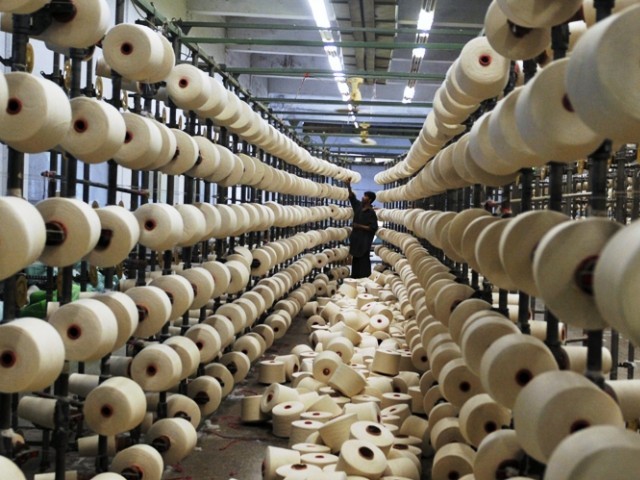
By Mohamed Salah Al-Din
The government textile sector is suffering from variety of problems; it is indebted to banks and various government agencies, it suffers from ageing equipment, it is unable to produce enough output to cover the costs of labour and material inputs.
The sector’s troubles make it a thorny subject for the new Egyptian political regime.
After statements by the Freedom and Justice Party, the government textile sector is anticipating decisions that could help the public sector to stand the competition of private companies.
Sabry Ereeda, head of the Cotton and Textile Industries Holding Company (CTIHC), stated that textile companies suffer from historical debts which have prevented them from modernising equipment since the 1980s. Ereeda stressed that holding the head of the company accountable for poor performance is a mistake, as it is necessary to hold everyone responsible for performance.
Textile companies seek to cover the cost of raw materials and labour, but they end up selling finished products for prices close to those of raw materials. The sector is currently looking forward to the coming reforms, according to Ereeda, especially smaller enterprises that aspire to develop a comprehensive vision to bring in appropriate profits.
There are only three public sector textile factories in Egypt, but they cannot compete until they’re able to provide high quality products. This is not possible with the current outdated equipment. The price of one kantar of cotton is EGP 725 while a ton of wool costs EGP 135,000. The wool is imported by the STIA Company, as this comapany holds an importation licence. Ereeda said the sector is not only in need of wool, but also Acrylic and Polyester. Factories often close for several days until the raw materials are acquired.
Companies in the public sector have difficulty coordinating with various administrations within a single company.
Ninety percent of production goes to the armed forces. Ereeda added that the company provides yarn to the Egypt – Helwan Company in exchange for cloth in order to fulfil the military’s needs in a timely fashion so as to avoid paying fines, noting that contracts with the armed forces currentlystand at approximately EGP 3million.
The current system of Egyptian textile manufacturing is the same one used in Germany in 1984, Ereeda exclaimed, adding that new electronic weaving systems are able to reveal flaws in the fabric, a technique made difficult or impossible by hand looms.
Companies in the textile sector require investments in equipment, labour, and administration in order to produce high quality products acceptable to consumers.
The ratio of administrative workers to technical workers is 4:1, Ereeda added, noting that companies need to increase the latter in order to operate efficiently.
Annual interest on debts to the National Investment Bank adds up to nearly EGP 60million, and the settlement brokered by former Minister of Investment, Mahmoud Mahhy El-Din, was in the favour of the banks.
Ereeda said he was against the closing of Egypt to cotton imports, but noted that protective tariffs must be established so that Egyptian companies can compete with their foreign counterparts. The public sector’s textile production is poor because of the lack of investment for many years. Ereeda stated that he is not against privatisation in principal, but that it must proceed transparently and protect the workers.
Wages in the private sector are higher than the public sector due to the significant decline in the production of the latter.



